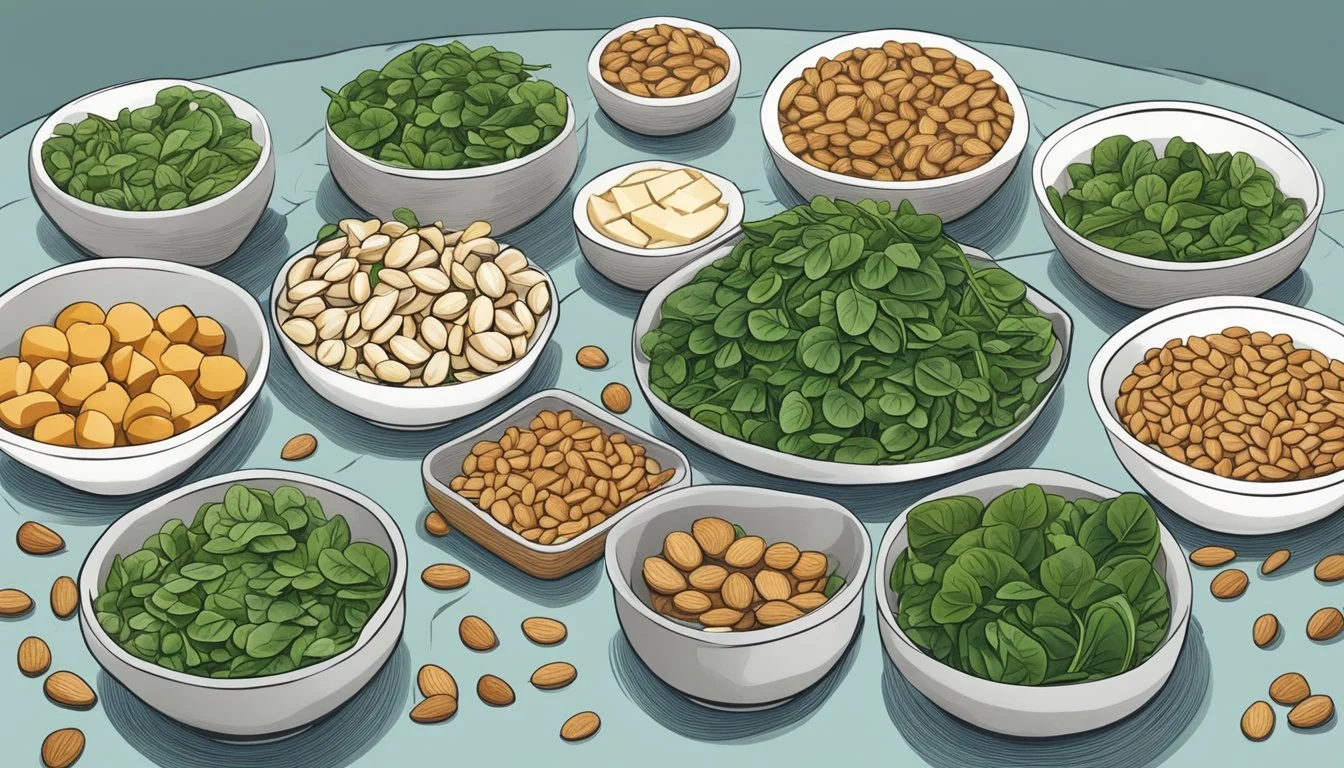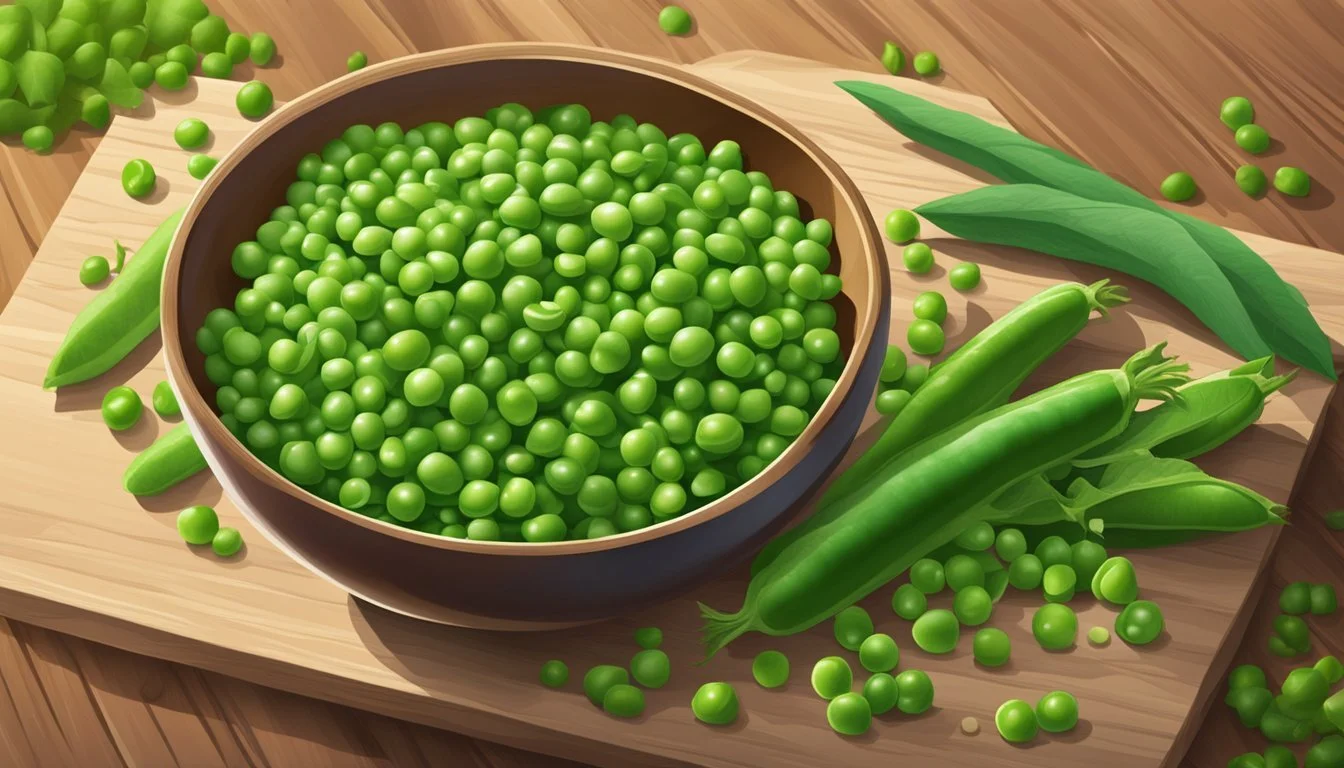Top 10 Foods High in Glutamine
Essential Amino Acid Sources
Glutamine is a crucial amino acid that plays a significant role in various bodily functions, including supporting immune health and aiding in muscle recovery. As such, incorporating foods high in glutamine into one's diet can provide numerous benefits. This amino acid can be found in a variety of food sources, making it accessible for those looking to enhance their nutrition.
Knowing which foods are rich in glutamine can help individuals optimize their dietary choices for better health and well-being. By understanding the glutamine content in common foods, it becomes easier to ensure that the diet includes sufficient amounts of this essential nutrient.
1) Chicken Breast
Chicken breast is a prominent source of glutamine, an amino acid crucial for various bodily functions. It offers a high protein content, supporting muscle growth and repair.
Each 100 grams of chicken breast provides approximately 0.9 to 1.8 grams of glutamine. This makes it a valuable addition to diets aimed at enhancing glutamine intake.
In addition to its glutamine content, chicken breast is low in fat, further promoting a healthy dietary choice. Cooking methods such as grilling, baking, or roasting help maintain its nutritional benefits.
Incorporating chicken breast into meals is simple. It can be added to salads, rice dishes, or enjoyed as a main course. Its versatility and nutritional profile make it a staple in many diet plans.
2) Beef
Beef stands out as a significant source of glutamine. Lean cuts of beef, like skirt steak or sirloin, are particularly rich in this amino acid. A 3-ounce serving of cooked lean beef typically contains between 2000-2800mg of glutamine.
Besides its glutamine content, beef is packed with high-quality protein, essential for muscle repair and growth. For athletes and fitness enthusiasts, beef can serve as an excellent recovery food.
In addition to glutamine, beef provides essential nutrients such as iron, zinc, and B-vitamins. These nutrients are crucial for maintaining overall health and energy levels. The combination of these nutrients can support various bodily functions, including the immune system.
3) Fish (salmon, mackerel)
Salmon is a well-known source of glutamine. It contains a significant amount of this amino acid which is crucial for various bodily functions. Consuming salmon not only provides glutamine but also offers omega-3 fatty acids, which are beneficial for heart health.
Mackerel also contains substantial levels of glutamine. This fish is rich in nutrients and supports various health benefits. Like salmon, mackerel provides essential fatty acids that contribute to overall wellness.
Incorporating these fish into a balanced diet can enhance glutamine intake effectively. Both salmon and mackerel can be prepared in diverse ways, such as grilled, baked, or steamed, making them versatile options for meals.
4) Eggs
Eggs are a notable source of glutamine, contributing significantly to daily intake.
A single large egg provides approximately 500 milligrams of glutamine.
They are versatile and can be easily incorporated into various meals, whether boiled, fried, scrambled, or poached.
Additionally, eggs are nutrient-dense, supplying essential vitamins and minerals along with high-quality protein.
This makes them a valuable addition to balanced diets.
Consideration should be given to both the yolk and the white, as each part contains beneficial nutrients.
5) Dairy products (milk, cheese)
Dairy products such as milk and cheese are excellent sources of glutamine.
Milk, in particular, is a versatile and common source of this amino acid. An 8-ounce serving of milk can provide a significant amount of glutamine, ranging from approximately 1500 to 2500mg.
Cheese, another dairy product, also holds noteworthy levels of glutamine. Different varieties of cheese can contribute varying amounts, but they generally remain a solid source of this essential amino acid.
Integrating milk and cheese into daily meals can help maintain proper glutamine levels. Glutamine plays a vital role in various bodily functions, including gut health and immune support. Including these dairy products can be beneficial for those aiming to enhance their overall protein intake.
6) Tofu
Tofu is a versatile plant-based food known for being rich in protein and essential amino acids. It is widely used in vegetarian and vegan diets.
A 100-gram serving of tofu contains approximately 0.6 grams of glutamine. This compound supports muscle recovery and immune function.
Tofu's nutritional profile extends beyond glutamine. It also provides fats, carbohydrates, vitamins, and minerals such as calcium and iron. This makes it a comprehensive addition to a balanced diet.
Available in various textures—soft, firm, and extra-firm—tofu can be incorporated into a range of dishes from smoothies to stir-fries. This adaptability adds to its popularity.
In summary, tofu offers a well-rounded nutritional package, making it a beneficial choice for those seeking to increase their glutamine intake.
7) Beans (kidney beans, black beans)
Both kidney beans and black beans are rich in glutamine, an amino acid vital for various bodily functions. These beans are not only high in protein but also provide a wealth of other nutrients beneficial for health.
Kidney beans contain significant amounts of carbs and fiber. They are also a good source of protein. A serving of 100 grams of boiled kidney beans offers substantial nutritional benefits, including essential micronutrients.
Black beans share many nutritional similarities with kidney beans. They are high in fiber and protein, making them a staple in many diets. Both types of beans contribute to muscle maintenance and recovery, which is essential for active individuals.
Including these beans in meals can add diversity and nutritional value. They can be used in salads, soups, casseroles, and numerous other dishes. This versatility makes them a beneficial addition to various dietary plans.
8) Peas
Peas are an excellent source of glutamine, a crucial amino acid. They are particularly beneficial for vegetarians looking to boost their intake of protein and essential nutrients.
Peas are versatile and can be easily added to a variety of dishes. Whether cooked in soups, stews, or simply steamed as a side dish, they maintain their nutritional value.
In addition to glutamine, peas provide a good amount of fiber, vitamins, and minerals. Regular consumption can support digestive health and overall well-being.
Including peas in your diet is a simple way to increase both protein and glutamine intake. This makes them an ideal choice for those focusing on muscle maintenance and recovery.
9) Lentils
Lentils are a significant source of glutamine, a crucial amino acid that supports muscle growth, gut health, and immune function.
Lentils come in various types, including green, red, and brown, each offering substantial nutritional benefits. They are rich in protein, fiber, and essential nutrients like iron and folate.
A serving of lentils can provide a notable amount of glutamine, contributing to overall dietary protein intake.
Lentils are versatile and can be used in soups, salads, and stews. This makes them an excellent addition to vegetarian and vegan diets, providing plant-based protein and essential amino acids.
Cooking lentils is straightforward. They require minimal preparation and can be cooked quickly, making them a convenient option for busy individuals.
10) Cabbage
Cabbage, particularly red cabbage, stands out as one of the highest vegetable sources of glutamine. Known for its anti-inflammatory properties, it is frequently used for gut health.
The versatility of cabbage makes it easy to incorporate into various meals. It can be juiced, shredded, fermented, or eaten raw in salads.
Red cabbage is also rich in vitamin C, potassium, folic acid, and vitamin B6, offering additional nutritional benefits. It’s a convenient way to boost glutamine intake while adding essential vitamins and minerals to the diet.
Health Benefits of Glutamine
Glutamine, an abundant amino acid in the body, plays a crucial role in muscle recovery, digestive health, and immune system support. Its presence in high-protein foods helps maintain and enhance various bodily functions.
Muscle Recovery and Growth
Glutamine significantly aids in muscle recovery and growth. It acts as a nitrogen shuttle, balancing nitrogen levels in the body, crucial for muscle synthesis. Intense exercise depletes glutamine levels, which can impair muscle recovery. Supplementing with glutamine helps replenish these levels, reducing muscle soreness and accelerating recovery. This makes it particularly beneficial for athletes and those engaged in strenuous physical activities.
Digestive Health
Glutamine is essential for maintaining gut health. It serves as a primary fuel source for enterocytes, the cells lining the intestines. By supporting these cells, glutamine helps maintain the integrity of the gut barrier, preventing leaky gut syndrome. It's also beneficial for individuals with gastrointestinal conditions like irritable bowel syndrome (IBS) or inflammatory bowel disease (IBD) such as Crohn's disease and ulcerative colitis, aiding in reducing inflammation and promoting healing.
Immune System Support
The immune system relies heavily on glutamine. It serves as a critical energy source for immune cells like lymphocytes and macrophages. During periods of illness or stress, the body’s demand for glutamine increases. Adequate levels help maintain immune function and support the body's ability to fight infections. This makes glutamine important for overall immune health, particularly in stressful or illness-prone situations.
How Glutamine Works in the Body
Glutamine, an amino acid, serves vital roles in the body, particularly in protein synthesis and nitrogen balance, crucial for maintaining overall health.
Role in Protein Synthesis
Glutamine is essential as it acts as a building block for proteins. Proteins are required for repairing tissues, building muscle, and supporting various cellular functions.
The amino acid glutamine contributes directly to lean muscle growth, making it particularly significant for athletes and bodybuilders. It facilitates muscle recovery post-exercise by aiding in the repair of muscle fibers.
In addition, glutamine is involved in the synthesis of other amino acids, ensuring a steady supply of nutrients necessary for the body’s anabolic processes. This supports continuous muscle repair and growth, especially after strenuous activities.
Impact on Nitrogen Balance
Glutamine plays a pivotal role in maintaining nitrogen balance, crucial for overall metabolic health. Nitrogen balance indicates the equilibrium between nitrogen intake and its excretion.
Glutamine serves as a primary nitrogen transporter between tissues, helping to distribute nitrogen where it is needed. It aids in detoxifying ammonia by converting it into urea, preventing toxicity and maintaining metabolic health.
A positive nitrogen balance supports muscle growth and repair, while a negative balance can lead to muscle wasting. Glutamine also supports the immune and digestive systems, both of which are heavily reliant on adequate nitrogen availability for optimal function.
Considerations for Dietary Supplementation
When considering glutamine supplementation, it's crucial to understand the recommended dosages and potential side effects to ensure safe and effective use.
Recommended Dosages
The recommended daily dosage of glutamine can vary significantly based on individual needs and health status. For general wellness, typical daily intake through diet is estimated to be about 3 to 6 grams.
For those supplementing, 20 to 35 grams per day may be suggested, particularly in cases needing targeted support, such as muscle recovery or gastrointestinal health.
Athletes and bodybuilders might increase their intake to up to 40 grams per day, divided into multiple servings, to enhance performance and recovery.
Medical conditions such as short bowel syndrome or sickle cell disease might require specific dosages, which should be determined by a healthcare professional.
Potential Side Effects
While glutamine supplementation is generally safe for most adults, there are potential side effects to be aware of. Gastrointestinal issues like bloating, stomach pain, and diarrhea can occur, especially at higher doses.
It's also important to consider that excessive intake can lead to imbalances with other amino acids and potentially affect kidney function. Individuals with liver disease or those prone to seizures should exercise caution and consult a doctor before starting supplementation.
Pregnant and breastfeeding women are typically advised to avoid glutamine supplements due to insufficient research on safety in these groups. Always follow professional guidance to mitigate risks effectively.







